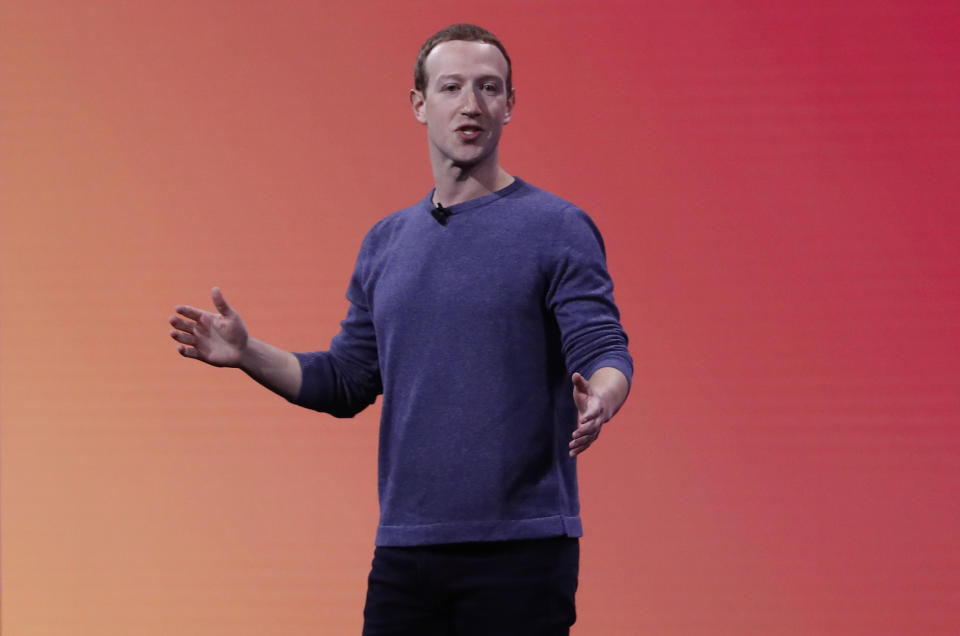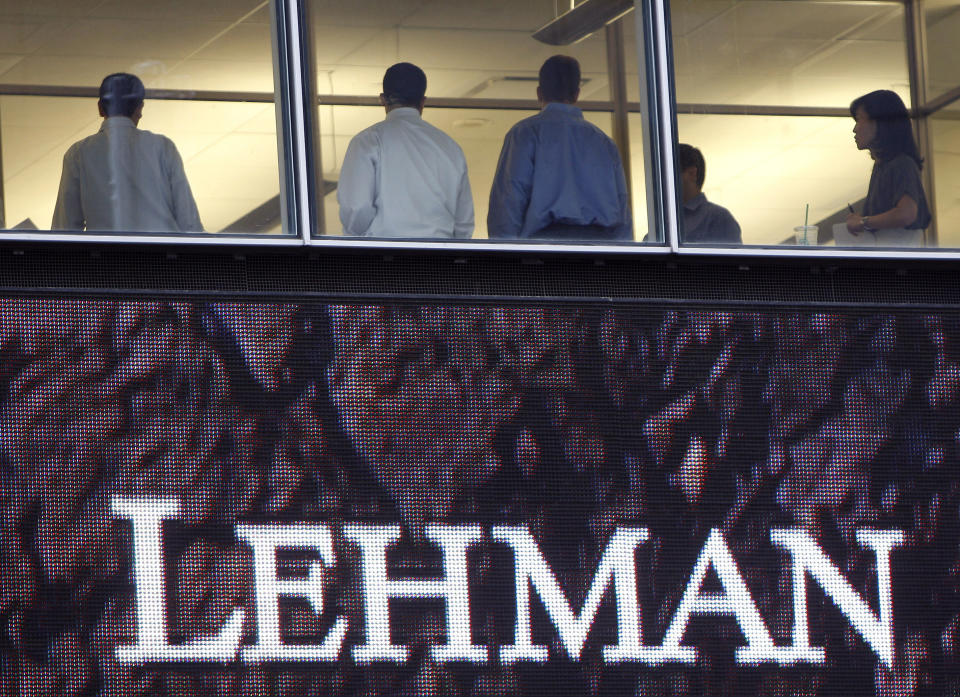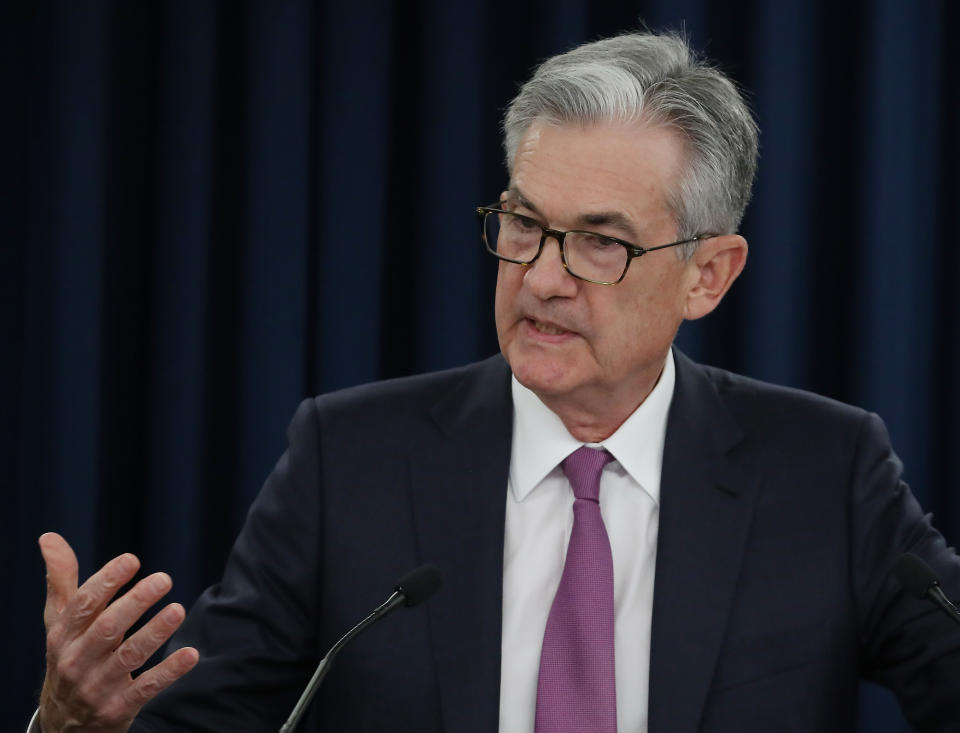Why the Fed should oversee Facebook’s Libra
Facebook (FB) Mark Zuckerberg’s recent announcement of ambitious plans to launch a new, global cryptocurrency called Libra has been met with understandable alarm, particularly among regulators and consumer advocates.
Much of the controversy has centered around antitrust issues, consumer privacy, and the ability of crooks to anonymously use the system for illicit purposes. Those are all legitimate concerns, but to my mind, the biggest risks are financial, both to users of Libra and the financial system as a whole. Those risks include the possibility of bank runs, credit disruptions, or consumer losses arising from foreign currency risks or financial mismanagement of the Libra reserve. The best way to understand these risks is to follow the money.
Buying and redeeming Libra
Let’s start with the process of buying and redeeming Libra. Most cryptocurrencies, including the granddaddy of them all, Bitcoin, have failed to gain widespread acceptance as a method of payment because of their volatility. Zuckerberg hopes to avoid this problem by backing Libra with a reserve of stable world currencies, including the dollar, Euro, and Swiss franc. So you can buy Libra with pretty much any fiat currency — a U.S. dollar, Brazilian Real, Mongolian Tugrik, Indian Rupee — but the amount of Libra you receive will depend on the exchange rate between your currency and the basket of currencies in the reserve at the time of purchase. When you want to redeem your Libra back into your fiat currency, you may get more. But you may also get a lot less, particularly in developing countries with unstable currencies. It will depend on the exchange rate at the time of redemption.

Let’s say you still want to buy this hip new digital coin, regardless of the foreign exchange risk. Where do you get the money? For citizens in the U.S. and other developed countries, the money will probably come from your bank account. It’s not going to hurt the banking system if you withdraw a few hundred a month for Libra transactions. But what if everyone decides they want to replace their bank accounts with Libra? After all, this would be a great way to avoid checking account fees. Retailers will love Libra as a way to avoid paying network fees on debit and credit card transactions. All of a sudden, that giant sucking sound is money coming out of the banks and into Libra’s kitty.
You may think, “Fine. Let’s stick it to the banks. Look what they did to the economy in 2008.” But most of that money you withdraw from the banks is money they will no longer have to lend to the economy. So as Libra captures your cash, banks have less to make loans. With a run on the banks, we also get a credit contraction.
What happens after Libra has your money?
Now Libra has your money (not the banks) and you have your digital coins. What will Libra do with your money? Libra’s white paper says your digital coin is safe because it will be backed by a basket of the most stable world currencies. But it’s not as if Libra will be purchasing paper money in each of these currencies and piling them in a bank vault. What this really means is that Libra will be taking your money and investing it in instruments denominated in those currencies.
The return on these investments is how Facebook and other Libra founders will make money. Thus they will have incentives to invest in instruments that will maximize those returns, which may or may not maintain the stable value Libra’s founders are promising. The white paper promises to invest in low volatility assets such as bank deposits and short-term government securities, using “investment grade” financial institutions as custodians. (Reminder: Lehman Bros had an “A” rating from Standard and Poor’s before its collapse in 2008.) But there is no regulatory body to ensure that it does so, nor to require that Libra’s sponsors put up any of their own capital or reserves to backstop those investments if they go sour.

In essence, Libra proposes the failed business model used by money market funds prior to the financial crisis. It wants you to buy Libra on the promise that the coin will maintain stable value, but there will be no regulatory oversight of what Libra actually does with your money and no capital and liquidity requirements that you would typically find with a bank. That structure proved disastrous during the 2008 crisis, when the Reserve Fund, a money market fund that heavily invested in Lehman Bros debt, “broke the buck” and prompted widespread runs on other money market funds.
A big re-allocation of resources
Even if Libra keeps its promise to put your money only in relatively safe bank deposits and government securities, we still have a problem. If the money comes out of banks (where it supports private sector lending) and goes into government securities, we would see a massive re-allocation of resources from the private to the public sectors. If you believe (as do I) that the market is generally a better allocator of economic resources than the government, this re-allocation will serve as a drag on economic growth.
Libra says it will also put your money into bank deposits. Bank accounts have the advantage of maintaining stable value. Your bank account balance doesn’t fluctuate as would a securities investment. And perhaps this helps with our bank run problem. You take money out of your bank to buy Libra. Libra puts yours and other users’ money into other banks, which will presumably use it to make loans.
But banks do fail, and depositors take losses on their uninsured deposits. So while Libra is saying it’s offering a better alternative to banks because it won’t be taking risk by lending out your money the way banks do, it will be putting at least some of your money right back into banks of its choosing. When you withdrew money from your bank to buy Libra, you probably had less than $250,000 in your account, meaning it was fully protected by the FDIC. But Libra’s founders hope to have a global reserve of hundreds of billions of dollars. Even if they spread the funds among multiple banks, at those levels, the lion’s share will likely be uninsured.
The need for regulation
Anyone who has followed my writings on blockchain knows that I’m enthusiastic about the use of distributed ledger technology to remove frictions in the payments system. So I don’t mean to sound too negative. The problem is, so long as cryptocurrencies have to rely on fiat currencies to maintain stable value, they will be exposed to the same kinds of risks embedded in the banking systems that support those currencies. I believe most of these risks can be addressed with thoughtful regulation. But before Mark Zuckenberg or anyone else tries to create his own global currency, we need to settle on an adequate regulatory framework to govern them.

It would make sense for Congress to give the Federal Reserve Board lead authority for overseeing Libra, given its responsibility to conduct monetary policy and oversee an effective and efficient payments system. It is also an experienced financial supervisor, well-equipped to develop capital and liquidity requirements for Libra and other such ventures. In exercising that authority, the Fed could build on the pioneering work of the New York Department of Financial Services which currently regulates two trust companies which have successfully launched stable coins backed by the U.S. dollar. (Disclosure. I serve on the board of one of those trusts, Paxos.)
Technology has the potential to dramatically change how the world pays for things in the future. Whether that transition is beneficial to consumers and businesses or financially disruptive will depend on whether regulators can stay ahead of this potentially rapid transformation. It’s open to question whether Mark Zuckerberg and Facebook are the right stewards for a new global cryptocurrency. But by firing this warning shot to government policy makers that such a change is coming and potentially coming soon, they have done a public service.
Sheila Bair is the former Chair of the FDIC and has held senior appointments in both Republican and Democrat Administrations. She currently serves as a board member or advisor to a several companies and is a founding board member of the Volcker Alliance, a nonprofit established to rebuild trust in government.
Read more:
How regulators can stop leveraged lending from becoming the new subprime
The $1.4 trillion student loan market faces a huge issue — transparency
Former FDIC Chair: The Fed needs to hit pause on rate hikes
America has left the door wide open for bailouts
Vulnerability in America’s lower income brackets poses a risk to the economy
China thinks long-term on financial stability — so should we
Follow Yahoo Finance on Twitter, Facebook, Instagram, Flipboard, SmartNews, LinkedIn, YouTube, and reddit.